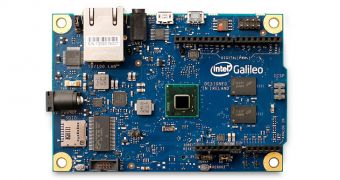It’s a well-known fact that Microsoft is working to bring Windows on smaller devices, but it appears that the software giant is about to get serious about such a plan at the BUILD 2014 developer conference kicking off today.
The company launched a new website called WindowsOnDevices that’s supposed to push developers towards smaller and smart devices, such as robots, coffee mugs, and teddy bears.
Microsoft claims the foundation of this new project is Intel’s Galileo board that will enable developers create technologies reading sensor information and collecting all types of data.
“Whether you are an experienced Windows developer looking to jump into the Internet of Things or you are new to Windows development and want to build the next big thing—we’re excited to see what you can do,” Microsoft says.
The company says that a completely new SDK will be released in the spring of 2014 that will basically allow developers to have a glimpse into what the new software can do, while more updates will follow in the next months.
“We’ll provide samples and documentation and we’ll show you how to create your own fun projects such as the life-size piano we demonstrated at Build 2014. And we’ll continue to release software updates throughout 2014 including a more complete API surface and integrated cloud services,” the company noted.
Of course, more details will be provided this week at the BUILD 2014 conference, when Microsoft is able to talk to developers directly and present its new plans for the Windows platform.
Rumors regarding Microsoft’s plans for smaller devices have been around for a while, with people close to the matter hinting that Redmond is also trying to step into the wearable computing tech industry with its very own smart watch.
Word is that Microsoft could develop a Windows-powered smart watch that could come with a very small touch screen and providing support for a wide array of features already available on tablets and PCs equipped with the company’s flagship operating system.
The company hasn’t yet confirmed any of these projects, but it’s pretty clear that Microsoft is struggling to bring Windows beyond the PC, the tablet, and the smartphone markets by getting closer to developers and launching such a project pretty much makes sense. More information will however be revealed in just a few hours so make sure you keep an eye on our BUILD 2014 coverage to stay up to date with Redmond’s plans.

 14 DAY TRIAL //
14 DAY TRIAL //